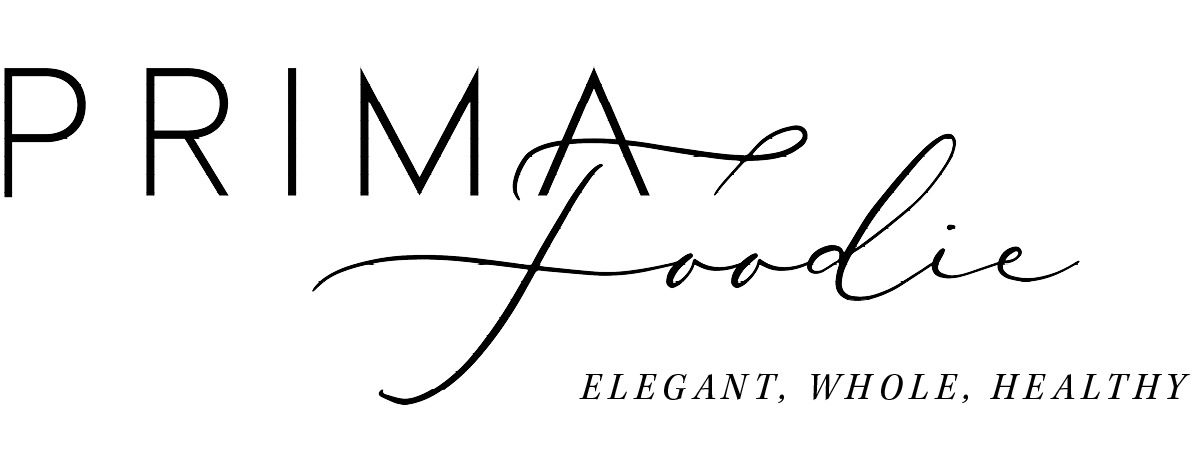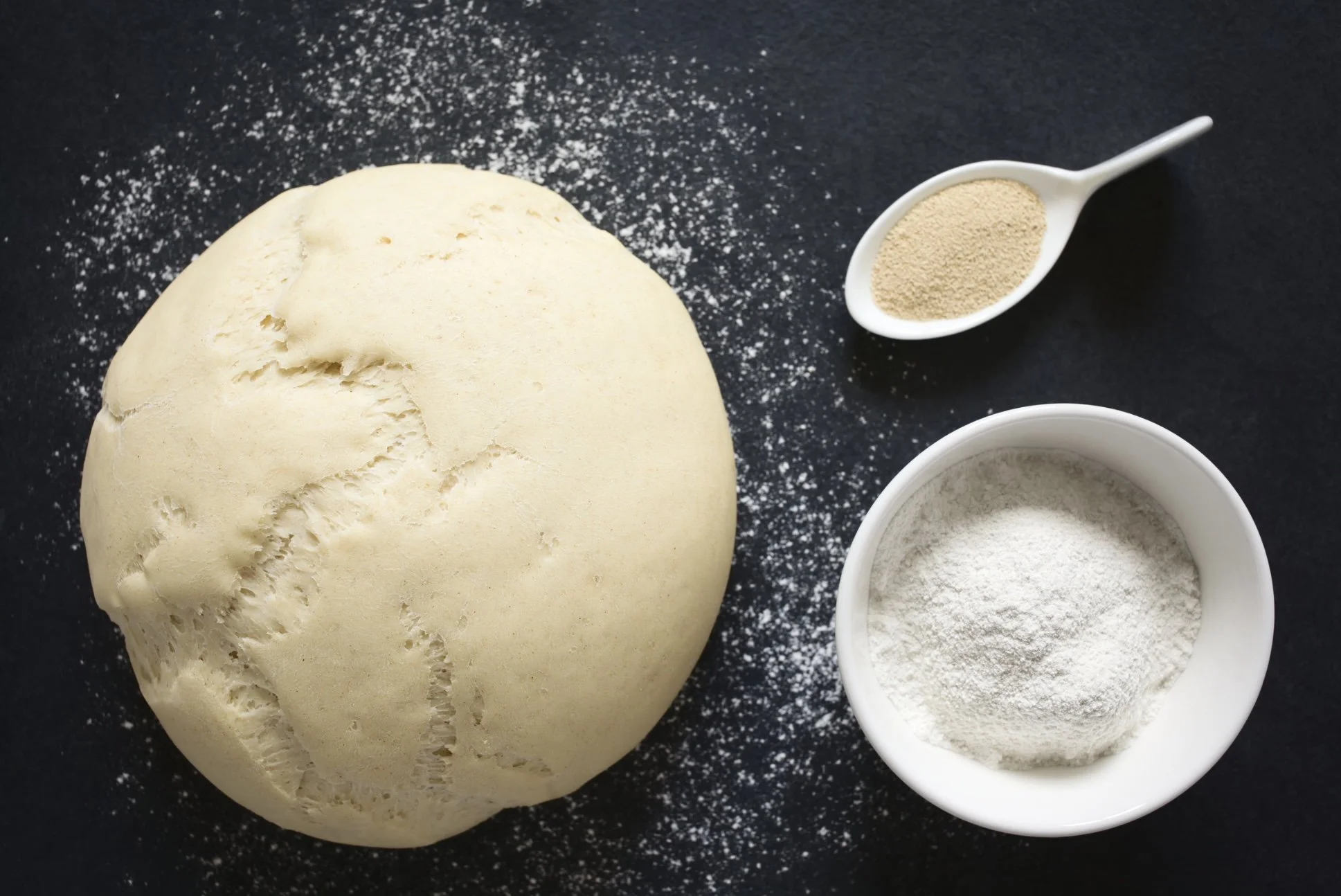Makenna Held, Host of the TV Series ‘La Pitchoune,’ Wants Us to Have More Fun in the Kitchen
Catch a glimpse of Makenna Held in the kitchen, and it becomes evident quickly: The writer, entrepreneur, and cooking teacher likes to have fun while she's whipping together ingredients—and she wants all of us to experience the same. Of course, it helps that Makenna teaches in Julia Child's former summer home La Pitchoune, which she and her husband purchased and now live with their kids and run their recipe-free cooking school aptly named the same. (La Pitchoune is also the name of their TV series about their cooking school.) Still, wherever Makenna is—in her native America or across the pond—she aims for a more inclusive, kinder approach to nourishing ourselves. "Food shouldn't be about stress," she says.
We caught up with Makenna over the summer to ask more about her approach to cooking and the most significant differences between our food system in the States and where she lives in France. Makenna, who is generous and kind, offers her insights, most of which are refreshingly outside of any boxes—or, as she would say, free of structured recipes. "A lot of the work that I do comes from the fact that I didn't have a choice," she says, "because I was never going to fit an ideal of what society had for me."
A Conversation with Makenna Held
How did moving to the South of France change your life in terms of how you cook and approach your day-to-day living?
Oh, that's a really good question! A lot of people talk about my move as being this massive change. I would say that our focus on cultural differences when it comes to Europe and America is almost an obsession. I think we have a lot more in common than we realize. A lot of Americans are European immigrants and are a few generations removed. So, Europe is more alike to the United States than we often admit. I would say my move didn't change much of my daily life. I still run an American business. I still have an American family. A lot of it is utterly familiar, in that there are grocery stores, farmers markets, and other things. The fact that it comes in a different language is hugely different, of course, and the products might be different, but there's so much that's the same.
Also, so much of this depends on where you're from in the United States. I spend my summers in Door County, Wisconsin, and I would say that the food system here is better than that in France. That being the local food system. What I get in the restaurants isn't necessarily the local ingredients where they're serving supper club grub, and where it may be delicious food, but it's made of, say, mass-produced chickens. So much of how you live your life has to do with personal choices and not your location. So, in answering this question, I chose to make the changes; the place didn't change it for me.
Education is a massive part of what you do in your TV show and your cooking classes, as is personal exploration and being creative in the kitchen. When it comes to cooking and nourishing ourselves, do you feel there's something people miss out on or overlook?
I would say that a lot of the ways that the system encourages us to feed ourselves in the United States is what causes a lot of the dysfunction. Having to find six exact ingredients and going to six grocery stores to find those ingredients and then facing the time wasted when one is sold out, well, that time could be spent being creative in the kitchen. One of the huge differences between how the average American and the average European cooks is that most European cooks don't follow recipes to a T. They have a few techniques they know how to utilize, and they have then figured out what's available at the market today. A huge difference between the European food system and the American system in general is that many year-round things, even in the large grocery stores, aren't present. Sure, you still may get cherry tomatoes in the winter in France, but you're not going to get mealy, hot-house-grown, no-flavor tomatoes in France. A lot of these things that we have become accustomed to in the United States year-round aren't year-round in Europe. So you're forced to think differently about food, intrinsically differently. That's a huge point of what makes the two systems so different, and it's probably what's changed me the most regarding my approach. But I had already made those decisions while living in the States. I made the decision to buy locally and check where it was coming from and how it was grown. Doing that in Europe is easier because there isn't that temptation. Even when I'm in the United States at Christmas and I see that hothouse tomato that looks red on the outside, I want to grab it. I think, maybe this one will be good. And they never are!
Much of this has to do with deciding to shop locally and mastering some techniques. If you master a dry roast and come up with a few sauces, those can become staples that make it much faster and easier to feed oneself. It is so much more fun to go into a market and buy things because they're actually beautiful and in season rather than because you need this amount of this on your list.
"Fun" is the operative word here because you look like you have lots of it in your kitchen. There's the sense that we don't have to do it all perfectly.
A lot of this is cultural, right? The obsession with Instagram-worthy dishes is because that's what you see the food stylist has styled. That pull to do that is natural. Or if you make it look pretty, your fussy toddler will eat it. Maybe that works one day but not the other. And there's the pressure to ensure your kids get the nutrition they need, because maybe what they're getting at school or at their friend's houses is not what you want.
In American culture, I've noticed that there's just a lot of pressure and stress around food. I don't feel any pressure, stress, or worry around food with anyone in my world. I have I know people who have made choices because they're celiac or face other health issues. But in my world, there isn't the stress you see so much of in other places. This also has to do with how everything is set up. In America, you have aisle upon aisle of fast chips. In Europe, generally, your chip aisle is much smaller and your cookie aisle is much smaller. The shelf lives are much shorter. The way that Ritz crackers are made in Europe is different from how they're made in the United States because of how the ingredients have been approved or not approved. It's those sorts of things that create stress. Food shouldn't be about stress, but it often becomes stressful, especially when it's made of things your body rejects.
You support the idea of recipe-free cooking. How has this approach expanded your life, in and out of the kitchen, and that of your cooking students?
When we look through one aspect of our life through a new lens and change the focus, we start to see new things. Many people make fun of me for what I do because they think it's so flippant. But it's actually not flippant. The number of people I've had in my kitchen crying because they were browbeaten by their mother, emotionally, about how they were terrible cooks growing up! Or maybe they grew up with trauma and sadness and hurt around food, whether that's eating disorders or family issues or all of those things. When you realize that you actually can be in control of the outcome, and you don't have to rely on an expert to be in control of the outcome, that can be so freeing. I am not anti-recipe. I just believe there are other ways to teach cooking than just using recipes. If you're teaching a gymnast, you may start with a recipe of a somersault, and eventually the gymnast will figure out how to do their own tricks. With cooking, we can start to figure out our own things. And that opens other places in people's lives.
Makenna Held is an author, entrepreneur, recipe-free cooking instructor, and host of La Pitchoune: Cooking in France, on the Magnolia Network. You can learn more at makennaheld.com.
Interview and story by @staceylindsay.







